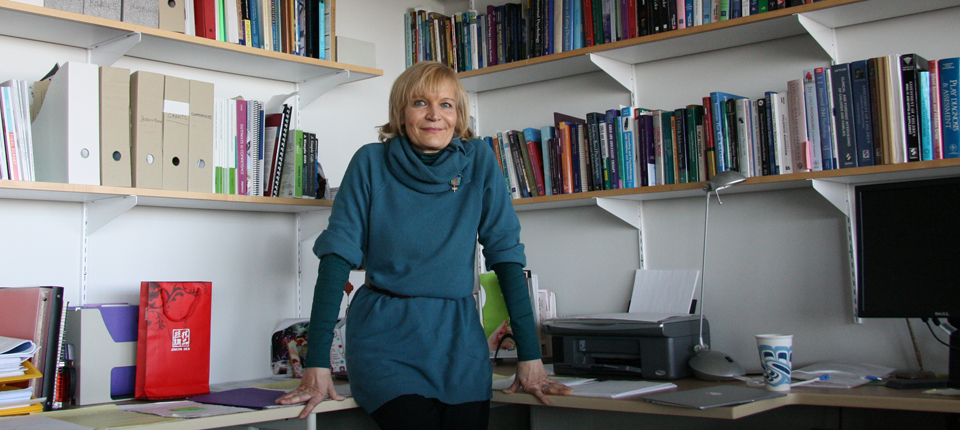How can society best support caregivers and children so that all youth may benefit from equal chances of growing up healthy, optimistic, and resilient?
Yvonne Bohr’s research on mental health from infancy to adolescence sheds light on the critical role of early parenting in promoting social and emotional well-being. Together with colleagues at the LaMarsh Centre for Child and Youth Research and the local and international community, Bohr examines contextual factors – trauma, economic inequality, acculturation – to design and assess evidence-based interventions for parents and children that promote youth mental health in diverse environments.
Inspiration
Roughly one out of five children suffer from mental health challenges, many of which could be prevented, and all of which could be alleviated with appropriate interventions, both individual and systemic. There continue to be substantial differences in the life chances that different groups of children enjoy, largely due to the luck of being born into a family with good resources versus living in an impoverished or traumatized community.
My students and I feel that our field of clinical psychology needs to evolve from a place where mental health problems are still often seen as a sign of individual psychopathology to a place where we recognize them for what they are: a sign of societal ills such as income inequality (and other types of inequity), and lack of social resources and capital.
Impact
What is one thing that kids need to thrive? Kids need attentive connection.
We recently established a new intervention for mothers with perinatal depression with community partners Aisling Discoveries Child and Family Center and Toronto Public Health in Scarborough. One novel component of this service is the “Crying Clinic” – a walk-in baby clinic. About two thirds of parents don’t feel confident in their parenting, but don’t know where to get parenting support and information. The new clinic allows caregivers to drop in to talk to a specialist in infant mental health when they are having difficulty with their baby crying. Crying is a universal behavior that parents worry about, so we are hoping to attract parents from diverse communities. When babies cry a lot or parents are bothered by the infant crying a lot, it is usually because there is some stress in the family. Crying is an entry point for us to reach vulnerable parents, and help them find resources and support when they are feeling overwhelmed.
Highlight
One of our studies generated international interest about the plight of infants caught in a globalized world that is increasingly characterized by family mobility. Immigrants to Canada expect to build their lives and thrive in a new environment, but the stressors they encounter upon arrival can be immense. Factors such as a lack of affordable childcare, language barriers and labour policies combine with economic circumstances to create extremely trying situations. Migrating parents are sometimes forced to adopt transnational lifestyles and be separated from their children, and our research found that this could lead to significant emotional challenges for the family, challenges that can have long-lasting effects on the health and well-being of both children and parents.
What’s Next?
We have a very exciting project about to be implemented in 25 remote communities in Nunavut. Canada has one of the world’s highest rates of teenage suicide, primarily in Inuit communities. Together with local Inuit youth and community leaders, we will be adapting an existing video game intervention for use by Inuit young people. The hope is that this innovative intervention will promote resilience in adolescents through the teaching of cognitive behavioural strategies to combat stress and depression.


